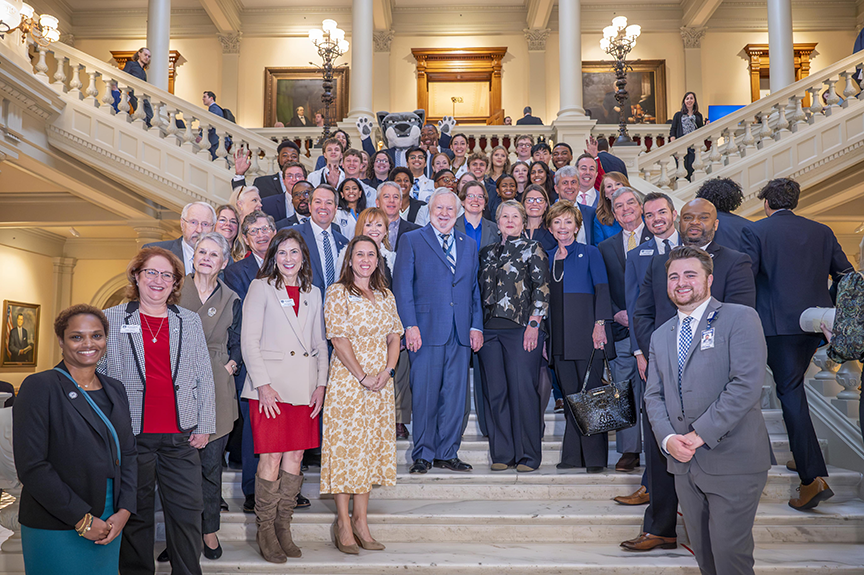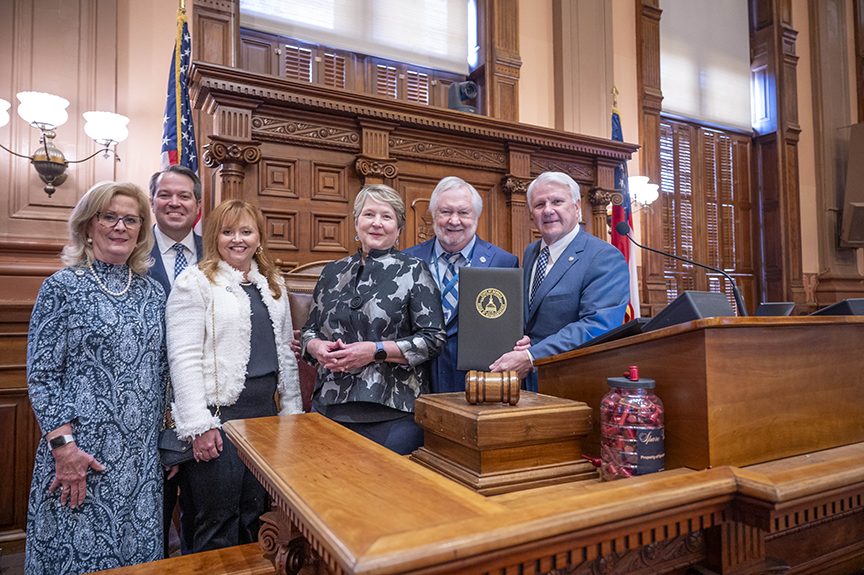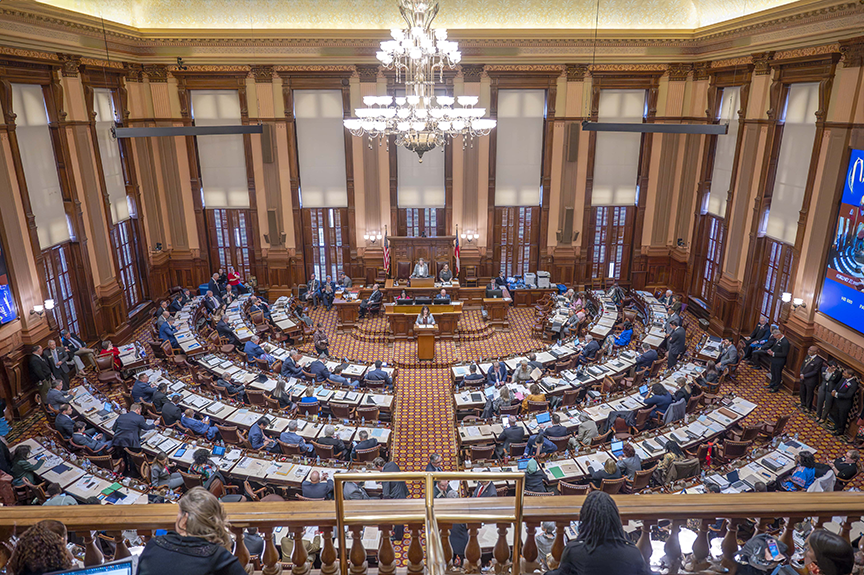For the 40-day 2024 legislative session spanning January into March, the Augusta University Government Relations team tracked 632 bills and resolutions that impacted all areas of AU programming, including 380 health care bills and 166 aimed at higher education. Of those, 150 bills passed.
Gov. Brian Kemp signed the fiscal year 2025 budget into law on May 7, marking the end of the 40-day bill review period following the 2024 Georgia General Assembly. FY25 will begin July 1.

The FY25 budget totals $36.1 billion, including boosting pay for many state employees, while increasing spending on education, healthcare, public safety and mental health. The $66 million in formula funding that was removed from fiscal year 2024 the year before, was fully restored in the amended FY24 budget and signed by Kemp in February.
Included in the FY24 budget was funding for the expansion of the Dental College of Georgia into Savannah and the Medical College of Georgia’s new Savannah Campus located on the campus of Georgia Southern University, which will open its doors in fall 2024.
“I am grateful to Governor Kemp, Lt. Governor Burt Jones, House Speaker Jon Burns, members of the Richmond County and Columbia County legislative delegations and the entire Georgia General Assembly for their support of Augusta University and the University System of Georgia,” said AU President Brooks A. Keel, PhD.
One of the highlights of the 2024 session was the recognition of Keel for his service to higher education in the state of Georgia during AU’s annual Capitol Day celebration.
“It was a tremendous honor to be recognized during this year’s Capitol Day celebration, and I will forever be grateful to Gov. Kemp and the General Assembly for their hard work to support the state of Georgia’s commitment to education during my time in higher education in this state,” said Keel.

For the university’s Health Sciences campus, $5 million was allocated for renovations to the AU Interdisciplinary Research Building, including significant updates to the central air handling unit.
One of the big-ticket items for AU signed by the governor in April was House Bill (HB) 872, which expands the service cancelable loan program for physicians and other providers in underserved areas to now include dental students.
Senate Bill (SB) 480, which was also signed into law in April, allows for health care workers specializing in treating mental health or substance abuse to be eligible for student loan repayment from the Georgia Health Care Workforce Board if serving underserved youth or in underserved geographic areas.
HB 1339 revises the provisions and definitions of the certificate of need process and allows for creation of the Comprehensive Health Coverage Commission. This will allow for exemptions for all capital expenditures and equipment purchases. It will also allow exemptions for psychiatric and substance use disorder programs, new or expanded perinatal services by a hospital in a rural county, acute care hospital in rural county if it is a teaching hospital or trauma center, birthing centers and a new short-stay general hospital in underserved population areas if a previous hospital closed within 48 months.
SB 395 seeks to address the opioid epidemic by providing training for and access to an opioid antagonist in certain government buildings, courthouses and school settings.
HB 1037 will allow for the creation of the Georgia Commission on Maternal and Infant Health, appointed by the governor, lieutenant governor, and speaker of the house, and will make policy recommendations on perinatal care.
The full listing of 2024 signed legislation can be found on the State of Georgia’s official site.
 Augusta University
Augusta University




